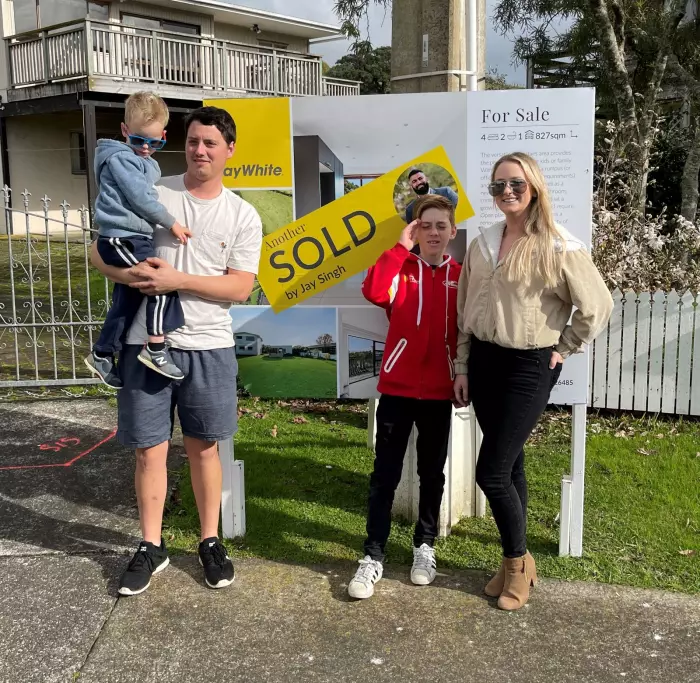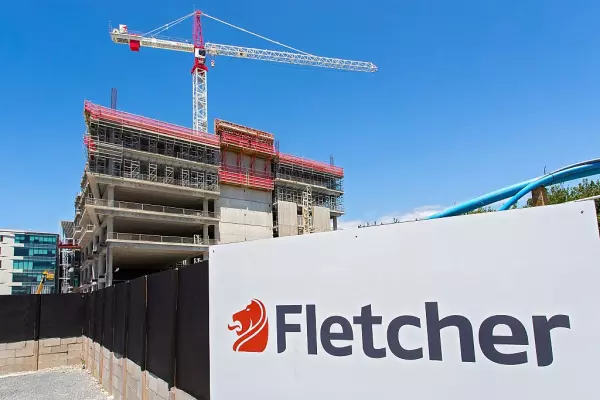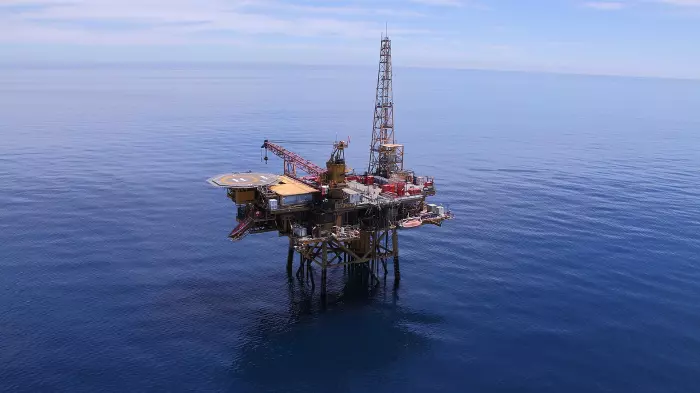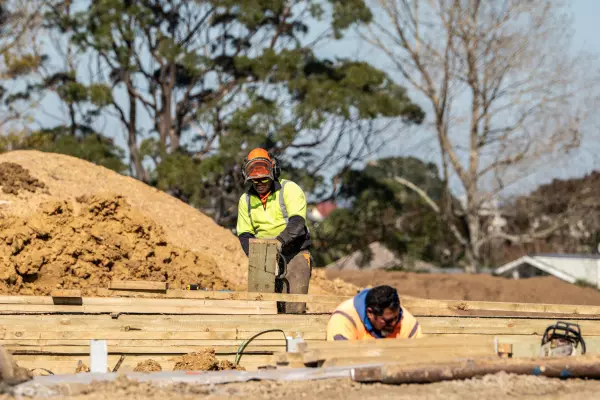Nicole Davidson and partner Rody Wiltenburg have spent the last 18 months searching for their first home.
Two weeks ago, the couple, their two young children and large dog moved into 22 Banks Rd, Kawakawa Bay, south-east of Auckland.
That was after “pretty much giving up hope” of finding anything worth buying, she told BusinessDesk.
They used up all of their savings and most of their KiwiSaver to get their deposit for the $880,000, four-bedroom home, which features a large yard and is close to the beach. It is, however, more than an hour’s commute for Davidson to her job in Mt Wellington.
It’s a similar story for Rajat and Shivani Uberoi, who took more than a year to close a deal on their first home, a plaster-clad, cross-lease home on Ribbonwood Crescent in Goodwood Heights.
The Uberoi's paid $780,000 at auction and, while they didn’t have to tap KiwiSaver, they did have to give some assurances as to its water-tightness, given the 1990s build date.
Rajat commutes to Henderson and Shivani into the city, but they’re happy to do it, as their daughter (7) is now settled at the local primary school.
Both families have bought at close to NZ's current median price for a home, which the Real Estate Institute now pegs at $826,000, a quarter up from the $659,500 level a year ago.
That's well under Auckland's median price, however, which has increased 28% over the past year to $1.18m. Nationally, about one in every three houses is now being sold for more than $1m.
So both buyers consider themselves lucky on two counts; finding something they can afford in a market where a lack of available houses is the pervasive problem.
In fact, the total number of properties available for sale through the country decreased by almost 35% over the year to July, to 12,684 from the 19,441 registered on property search site realestate.co.nz a year ago.
Lowest ever
Real Estate Institute chief executive Jen Baird said that's the lowest level of inventory ever in NZ, and was particularly obvious in Northland, Nelson and Canterbury where listed properties dropped by about half.
There's no surfeit of homes on the market in Auckland either. Barfoot & Thompson managing director Peter Thompson said at the end of July the realtor, Auckland’s biggest, had 2,629 properties on its books. This is the lowest level for any month in more than five years and the lowest on record in the middle of winter.
So now it is about “simply selling all that we list promptly, at premium prices to a large pool of committed buyers”.
Thompson said this also meant prices weren't going to be much of a deterrent in the city, even with the prospect of looming interest rate rises.
The latest numbers from REINZ bear that out with its July house price index maintaining a trajectory ahead of 30% year-on-year.
Again, there are regional differences, so while Auckland increased 27.7%, Manawatu/Wanganui showed a whopping 48.5% increase in prices. Wellington was at 39.9%.
About a quarter of all mortgages are going to first-home buyers, with deposits helped along by KiwiSaver withdrawals, the bank of mum and dad as well as softer banking terms, in the form of lower loan-to-value ratios.
Kelvin Davidson, an economist with Corelogic, said about four-fifths of all lending that was done with a deposit of less than 20% went to FHBs last month. That compares to about 11% to owner-occupiers while mortgage lending to investors dipped to 24.2%, the lowest point in a year.
That, he said, probably reflected “the 40% LVR requirements more than March’s tax changes”.
New mortgage commitments in June were at $8.6 billion, and while that's about $3.2b higher than a year ago, it does reflect less buying during the tail end of covid lockdowns.
A correction looming?
Some economists think a deceleration is inevitable.
Grant Swanepoel, director of equity research at Jarden, suggests homes are already 10% overbought from a homeowner perspective, but at 16% from an investor standpoint.
With general mortgage payments already stretched to more than 28% of household expenditure, Swanepoel suggests house prices could decline by 6% next year and again 3% in 2023.
ANZ economist Miles Workman also thinks the market will adjust and prices will come off as a whole, both on the back of OCR hikes and the catch-up in housing supply but also because of the "headwinds" of affordability.
While Workman characterises the housing market as "resilient" over the past few months, he said there was some risk that the above could culminate in a "much sharper house price adjustment that we expect".
So, he said, the plan should be to engineer a soft landing for housing with "as little economic fallout as possible".
But Swanepoel anticipates a sharper pullback in volumes over the next two years, albeit moderated by government interventions to improve undersupply in the market.
Workman warns that even if low but stable house price inflation is achieved, and income growth is maintained at robust levels, it could still take decades before housing affordability measures return to pre-covid levels.
And those were elevated to start with.














